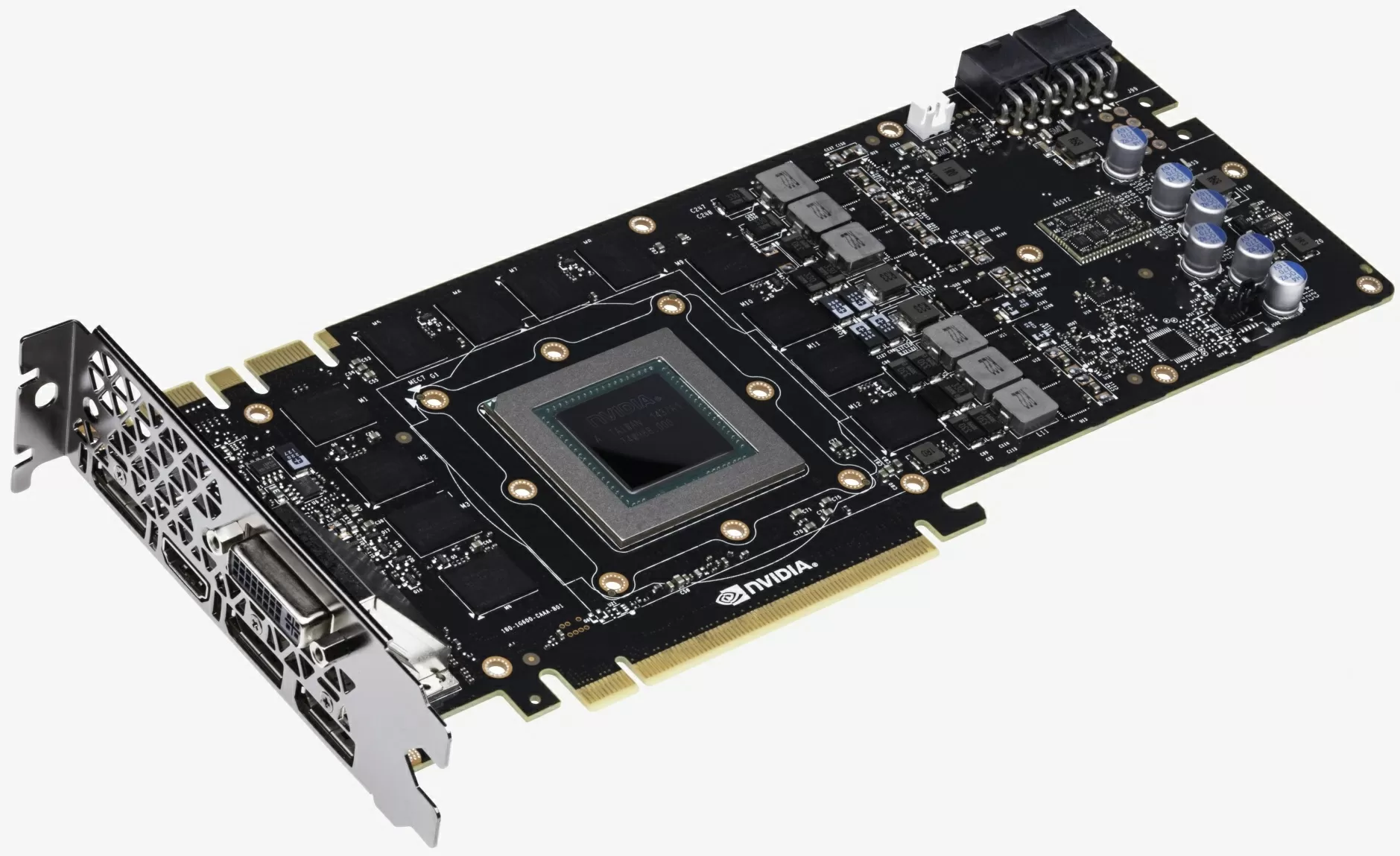You might say 2015 hasn't been the most exciting year for graphics cards, though in many ways it was more eventful than 2014. The only big highlight last year was the arrival high-end Maxwell GPUs in the form of the GeForce GTX 980 and 970. Then this year Maxwell did what many thought was impossible: becoming considerably faster.
Last year's GTX 980 featured 2048 CUDA cores, which now looks underwhelming put against the Titan X's whopping 3072 CUDA cores, a nice 50% bump for the architecture. Nvidia also went the other way, releasing the $160 GTX 950 which sports just 768 CUDA cores.
All told, Nvidia released four new GPUs in 2015, while AMD delivered eight cards if you're willing to be loose with the definition of "new" and three if you're not, namely the Radeon R9 Fury X, Fury and Nano.
Some of you are probably shouting that the 390X and 390 are new as well. Yes, the Radeon R9 390X and 390 received double the VRAM, but they are essentially the same GCN 1.1 GPUs – 290X and 290, respectively. Thus far, the larger 8GB memory buffer has proven to be of little benefit, so we prefer the cheaper 290s anyway.
At this point, it looks like AMD and Nvidia have finally squeezed the most out of the 28nm design process. Before moving on, AMD will release a dual-GPU version of the Fury X which should become the Fury X2. Nvidia could also return fire with a dual-GPU monster of its own.
| AMD and Nvidia Graphics Cards by Price Range | |||||
| $999+ | GeForce Titan X | $1000 | |||
| $600+ | Radeon R9 Fury X | $650 | GeForce GTX 980 Ti | $630 | |
| $500 - $600 | Radeon R9 Fury | $550 | |||
| $400 - $499 | Radeon R9 390X | $420 | GeForce GTX 980 | $480 | |
| $300 - $399 | Radeon R9 390 | $300 | GeForce GTX 970 | $300 | |
| $200 - $249 | Radeon R9 380 | $200 | GeForce GTX 960 | $210 | |
| $150 - $199 | Radeon R7 370 | $150 | GeForce GTX 950 | $160 | |
| $100 - $149 | Radeon R7 360 | $110 | GeForce GTX 750 Ti | $110 | |
Something we haven't seen a lot of this year has been price cuts. AMD was forced into aggressive discounts last year to compete, but this year the company has been competitive at the upper end of the high-performance GPU market and has therefore felt less pressure to reduce prices.
As shown in the table above, the key battles are currently being played out between the GTX 750 Ti and R7 360 at ~$100, the GTX 950 and R7 370 at $150, the GTX 960 and R9 380 at $200, the R9 390 and GTX 970 at $300, the R9 390X and GTX 980 at $450 and finally the GTX 980 Ti and R9 Fury X at $650. By the end of this article we should have figured out what are the best buys at every price point.
Test System Specs
- Intel Core i7-5960X (3.00GHz)
- x4 4GB Kingston Predator DDR4-2400 (CAS 12-13-13-24)
- Asrock X99 Extreme6 (Intel X99)
- Silverstone Strider Series (700w)
- Crucial MX200 1TB (SATA 6Gb/s)
- GeForce GTX 750 Ti (2048MB)
- GeForce GTX 760 (2048MB)
- GeForce GTX 950 (2048MB)
- GeForce GTX 960 (2048MB)
- GeForce GTX 970 (4096MB)
- GeForce GTX 980 (4096MB)
- GeForce GTX 980 Ti (6144MB)
- GeForce Titan X (12288MB)
- Radeon R7 265 (2048MB)
- Radeon R7 360 (2048MB)
- Radeon R7 370 (2048MB)
- Radeon R9 270 (2048MB)
- Radeon R9 285 (2048MB)
- Radeon R9 380 (2048MB)
- Radeon R9 390 (8192MB)
- Radeon R9 390X (8192MB)
- Radeon R9 Fury (4096MB)
- Radeon R9 Fury X (4096MB)
- Microsoft Windows 10 Pro 64-bit
- Nvidia GeForce 358.50
- AMD Catalyst 15.7.1

